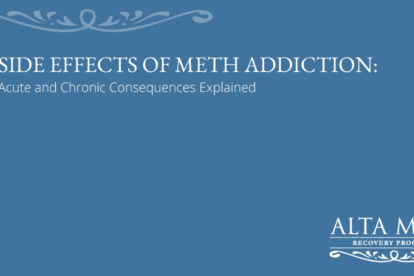
Cannabis-Induced Bipolar Disorder
Cannabis-induced bipolar disorder occurs when someone who misuses marijuana experiences bipolar symptoms as a result. While the complex connection between cannabis and this mental illness is not fully understood, there is evidence that use of the drug can trigger bipolar disorder, and specifically manic episodes, both in people who have already been diagnosed with bipolar disorder and those who have never experienced symptoms before. Treatment for marijuana abuse and bipolar disorder can help resolve symptoms and restore function.
What Is Cannabis-Induced Bipolar Disorder?
Bipolar disorder is a mental health condition that causes a person to experience unusual mood swings between periods of depression and periods of mania. Depression is a persistent low mood with changes in sleep and eating habits, fatigue, and lack of interest in activities, while mania is a state of euphoria, high energy, irritability, and high activity levels.
Cannabis, also known as marijuana, is one of the most common substances of abuse. While most people who use this drug will not experience serious mental health symptoms as a result, there is a small percentage of users who will have mental illness triggered by marijuana.
Cannabis-induced bipolar disorder occurs when someone has symptoms of mania or mania and depression as a result of using marijuana. This is a rare occurrence, and it is not always clear whether the drug has caused bipolar symptoms or if the individual had underlying, untreated bipolar disorder exacerbated by cannabis use. Researchers investigating this phenomenon are beginning to uncover causes and risk factors, but it appears that the relationship between marijuana and bipolar disorder is complicated.
Types of Cannabis-Induced Bipolar Disorder
There are a few different types of bipolar disorder, and use of cannabis may trigger any of them. The type of bipolar disorder that the drug use causes may depend on whether or not a person has already experienced or been diagnosed with the condition and the kinds of symptoms that occurred previously.
- Bipolar I Disorder. This is the type of bipolar disorder that causes both depression and mania. The episodes of mania may be milder, called hypomania, but they also may be severe, causing psychotic symptoms like delusions.
- Bipolar II Disorder. Bipolar II causes depression and hypomania, but not mania. The manic symptoms are milder than those experienced in bipolar I. Depression in this type often lasts longer, though.
- Cyclothymic Disorder. Also known as cyclothymia, this condition causes at least two years of cycling between milder periods of depression and hypomania.
Facts and Statistics
Marijuana is the most commonly used illegal substance. It is well-known that use of cannabis can trigger psychosis in a small number of users, but research into cannabis-induced bipolar is more recent and is discovering interesting facts about the connection between drug use and the mental illness.
- Fourteen percent of American adults used marijuana recreationally in 2017. Forty percent of twelfth graders used the drug at least once in 2017, while nearly six percent used it regularly.
- More than one-third of emergency room visits in 2011 that involved marijuana use included psychotic symptoms.
- Marijuana is the most commonly abused substance by people who have been diagnosed with bipolar disorder.
- Research has found that cannabis use in people who already have bipolar disorder can induce manic episodes.
- A recent study found that use of marijuana may also trigger mania in people who had never had manic symptoms previously.
- Cannabis use is known to trigger psychosis in some people. A recent study of 6,800 people found that of those who had experienced cannabis-induced psychosis, one-third later developed schizophrenia or bipolar disorder.
Symptoms and Diagnosis of Cannabis-Induced Bipolar Disorder
Cannabis-induced bipolar disorder is associated with regular abuse of marijuana, if not a substance use disorder. When diagnosing someone with this condition it is necessary to observe signs of both marijuana misuse and bipolar disorder. Symptoms of cannabis use include:
- Feelings of euphoria
- Heightened senses of sight, taste and other perceptions
- Increased appetite
- Red, dry eyes
- Dry mouth
- Elevated heart rate and blood pressure
- Poor coordination and delayed reactions
- Trouble concentrating, thinking, and remembering
- Anxiety
- Paranoia
Symptoms of bipolar disorder include both those of depression and those of mania or hypomania. Depressed episodes are characterized by:
- Sadness, hopelessness, and emptiness
- Loss of interest in otherwise pleasurable activities
- Weight loss or weight gain that is unusual
- Insomnia or oversleeping
- Restlessness and agitation or apathy and lack of movement
- Fatigue
- A sense of worthlessness and guilt
- Difficulty thinking and concentrating
- Suicidal thoughts or behaviors
Mania and hypomania cause similar symptoms, but when they are milder they are considered to be caused by a hypomanic episode. Those symptoms may include:
- Feeling upbeat and jumpy
- Feeling overly confident and capable, euphoric
- A high level of energy and activity
- Agitation or irritability
- Sleeping less
- Racing thoughts and increased talking
- Getting distracted easily
- Impulsive, often risky or dangerous behaviors
Diagnosing cannabis-induced bipolar disorder can be difficult, because this is a condition that is not yet well understood. A mental health or substance use professional may make the diagnosis if the symptoms of bipolar disorder began after using marijuana and if the patient had never experienced bipolar symptoms before drug use.
Causes and Risk Factors
The immediate cause of cannabis-induced bipolar disorder is marijuana abuse. The connection between the drug and the mental illness is not completely understood and is thought to be more complicated than a simple cause and effect. However, it is known that more frequent, heavy use of marijuana does increase the risk, demonstrating that there is a definite connection.
What is still not clear, despite the research that has been done so far, is whether cannabis truly triggers or contributes to bipolar disorder or whether pre-existing bipolar disorder leads to use of the drug. It also may be that someone who is predisposed to bipolar disorder may experience symptoms earlier or more severely because of using cannabis.
What experts do know is that there are definite risk factors, both for cannabis use and for bipolar disorder, and that many of these overlap. Family history of substance use disorders is a risk factor for drug use, and family history of mental illness is a risk factor for bipolar disorder. Other factors that impact both substance use disorders and mental illness include early traumatic experiences, personal history with substance abuse, and having any type of mental illness.
For bipolar disorder induced by cannabis use, risk factors include early use of the drug. The first signs of bipolar disorder are usually seen in adolescence or in the early 20s. Marijuana use during adolescence, while the brain is still developing and when bipolar disorder may be developing, can increase the risk of having this condition. Heavier use of the drug over longer periods of time also increases the risk of cannabis-induced bipolar disorder.
Co-Occurring Disorders
Someone who has both a substance use disorder and a mental illness, or more than one mental illness, is said to have co-occurring disorders. Individuals with bipolar disorder have the highest rates of co-occurring substance abuse, and marijuana is the most commonly abused substance among those diagnosed with bipolar.
Bipolar disorder may also co-occur with other types of substance abuse. A study of several thousand individuals found that those who experienced psychotic symptoms triggered by other substances, like alcohol or opioids, were more likely than others to also develop bipolar disorder or schizophrenia. This seems to indicate that psychosis may co-occur with bipolar disorder, either induced by cannabis or not. Someone who has cannabis-induced bipolar disorder may also have other co-occurring mental illnesses, like anxiety or eating disorders.
Think You Might Have a Drug-Induced Disorder?
Proper Diagnosis is Essential for Effective Treatment
Treatment and Prognosis of Cannabis-Induced Bipolar Disorder
For someone diagnosed with this condition it is important to get treatment for bipolar disorder but also for cannabis use disorder. If an individual has used marijuana heavily or frequently enough to induce bipolar symptoms, it is likely he or she can also be diagnosed with a substance use disorder. The best outcomes for co-occurring disorders are when both are addressed and treated at the same time.
For both conditions therapy is a central factor in treatment. Behavioral therapies that help patients learn to make positive changes, as well as group and family therapies, alternative therapies and creative therapies, can help lead to sobriety and symptom management. A residential facility and outpatient programs can provide appropriate therapy and may also have supplemental services, such as medical care, holistic treatment, recreation, and support groups.
Bipolar disorder is also often treated with medications, although the best care includes therapy as well. Medications used for bipolar disorder include mood stabilizers to steady moods and control cycle between depression and mania. Some patients may also benefit from antipsychotic medications and antidepressants. It can take some time to find the right combination of medications, and it is important for individuals to follow a doctor’s instructions during this process, never stopping use of a drug without guidance.
The outlook for someone with cannabis-induced bipolar disorder is positive with treatment for both conditions. If cannabis use can be stopped and therapy and medication started to manage bipolar symptoms, a patient has a very good chance of restoring function and being able to enjoy a normal life again.






